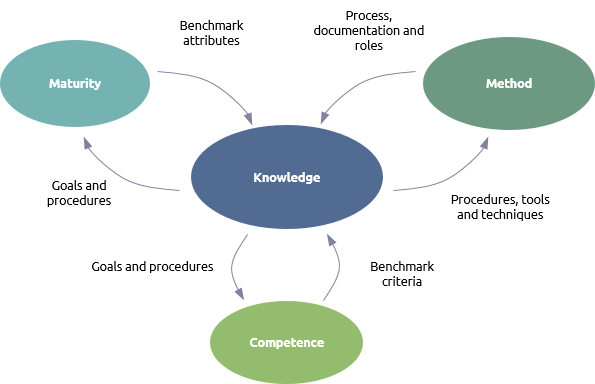This section is so named because it aligns with guides that are frequently referred to as 'Bodies of Knowledge'. The aim is to define the building blocks of the discipline of P3 management and is based on the concept of a functional analysis. The functions described in this section are split between context and management.
Contextual functions are not directly responsible for achieving project, programme or portfolio objectives but are part of the context in which supports that endeavour.
Management functions are the ones that are applied in the completion of projects, programmes and portfolios.
A key concept of Praxis is that the dividing lines between projects, programmes and portfolios are blurred. Some ventures will exhibit characteristics of all three. The underlying principle is that the terms project, programme and portfolio simply represent points on a continuum that is described by the complexity of the work being managed.
Therefore, wherever appropriate, a function is described in terms of its general application and then by its adaptation to increasing complexity.
The knowledge section integrates with all the other sections of Praxis. Each function describes the procedures, tools and techniques that can be used in management processes. In return the method section provides a structure for the use of the functions within the life cycle.

The management functions also provide the structure and specific goals for the capability aspect of maturity. The procedures described in each function are used as the basis for defining different levels of capability and the attributes described in the maturity model provide benchmarks for the organisational implementation of the function.
The goals and procedures described in the functions form the basis of the knowledge and performance criteria listed for each competency. In return these provide benchmarks for the individual performance of the function.





